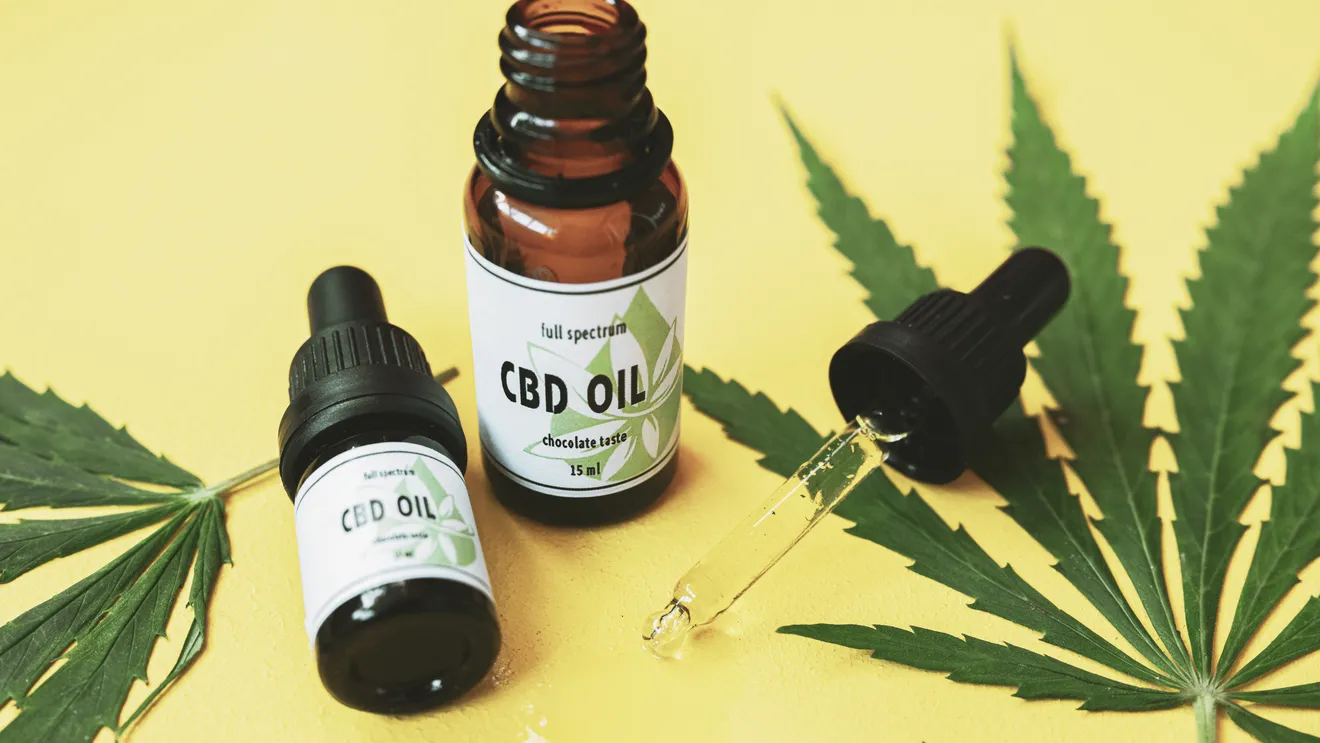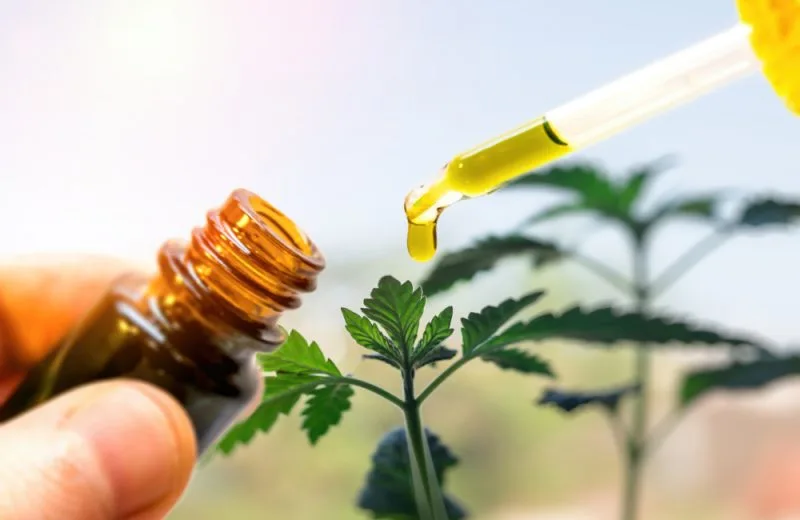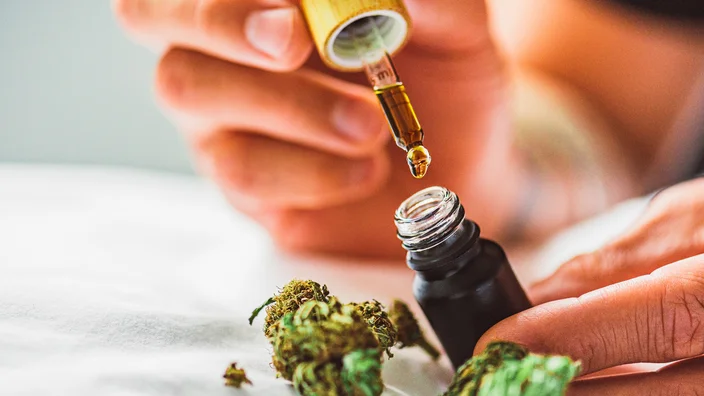In recent years, cannabidiol (CBD) has emerged as a prominent wellness trend in Canada, capturing the attention of consumers seeking natural remedies for various ailments. With its purported therapeutic benefits and the legalization of cannabis for both medical and recreational purposes across the country, the popularity of CBD products has soared. However, amidst the growing enthusiasm for CBD, there’s a crucial aspect that consumers need to be aware of: its interaction with drug tests.
Understanding how CBD may affect drug test results is paramount, especially for individuals subject to drug screening in workplaces, sports organizations, or law enforcement agencies. This article delves into the intricacies of CBD’s relationship with drug tests, providing valuable insights into its detection, potential effects on test outcomes, and essential factors to consider. By elucidating this often overlooked aspect of CBD usage, we aim to equip readers with the knowledge necessary to make informed decisions about their health and well-being while navigating the complexities of drug testing protocols. Through a structured exploration of relevant topics, we’ll shed light on the crucial intersection between CBD and drug tests, empowering readers with comprehensive information to navigate this landscape effectively.
Understanding CBD and Drug Tests
To fully grasp the dynamics between CBD and drug tests, it’s imperative to comprehend the fundamentals of both CBD and the various drug testing methods employed. CBD, short for cannabidiol, is a naturally occurring compound found in the cannabis plant. It’s extracted from two primary sources: hemp and marijuana. While both hemp and marijuana belong to the cannabis family, they differ significantly in their chemical composition. Hemp typically contains high levels of CBD and negligible amounts of THC, the psychoactive compound responsible for the “high” associated with marijuana. On the other hand, marijuana contains varying concentrations of both CBD and THC. This disparity in THC content is crucial when considering the potential impact on drug test results.
Drug tests come in several forms, each with its unique mechanisms for detecting substances in the body. The most common types include urine tests, saliva tests, hair follicle tests, and blood tests. Urine tests are widely used due to their convenience, affordability, and ability to detect a broad range of substances. Saliva tests offer rapid results and are often administered in roadside or on-the-spot screenings. Hair follicle tests provide a longer detection window, capable of revealing drug use over an extended period. Blood tests are considered the most accurate but are typically reserved for specific situations, such as post-accident investigations or medical examinations.

The detection of substances in drug tests relies on various methods, including immunoassay screening and confirmatory testing through techniques like gas chromatography-mass spectrometry (GC-MS) or liquid chromatography-tandem mass spectrometry (LC-MS/MS). These methods target specific compounds or their metabolites present in bodily fluids or tissues, such as urine, saliva, hair, or blood.
Several factors can influence the detection of CBD in drug tests. Dosage plays a crucial role, as higher doses of CBD may increase the likelihood of detection. Similarly, the frequency of CBD use can impact its accumulation in the body and subsequent detection in drug screenings. Additionally, individual metabolism and physiological factors vary among individuals, affecting the rate at which CBD is processed and eliminated from the system. Considering these variables is essential for individuals undergoing drug tests to understand the potential implications of their CBD consumption habits on test outcomes.
CBD vs. THC: Key Differences
It’s crucial to distinguish between CBD and THC, two prominent cannabinoids found in cannabis, to comprehend their disparate effects and implications in drug testing scenarios. CBD (cannabidiol) and THC (tetrahydrocannabinol) are chemical compounds derived from the cannabis plant, each with distinct properties and physiological effects. While both cannabinoids interact with the body’s endocannabinoid system, they elicit different responses. CBD is non-intoxicating and is associated with various therapeutic benefits, including pain relief, anxiety reduction, and anti-inflammatory properties. On the contrary, THC is psychoactive and responsible for the euphoric “high” commonly associated with marijuana use.
In Canada, the legal status of CBD and THC differs significantly due to their distinct properties and regulatory frameworks. CBD derived from industrial hemp containing less than 0.3% THC is legal for sale and consumption nationwide, following the legalization of hemp cultivation in 2018. CBD products derived from hemp are widely available in various forms, including oils, capsules, edibles, and topical solutions, and can be purchased from licensed retailers or online dispensaries. Conversely, THC remains tightly regulated under the Cannabis Act, with legal access restricted to licensed producers and authorized retailers for medical and recreational purposes. While recreational cannabis containing higher THC concentrations is legal for adult use, stringent regulations govern its production, distribution, and consumption.
In drug testing contexts, THC is typically detected through various methods, depending on the type of drug test administered. Urine tests, the most common form of drug screening, often target THC metabolites such as THC-COOH to assess recent cannabis use. Saliva tests may detect THC directly in oral fluids, providing rapid results within a short detection window. Hair follicle tests are capable of revealing THC use over an extended period by analyzing THC metabolites embedded in hair shafts. Blood tests, although less common, can detect THC and its metabolites shortly after ingestion, providing real-time evidence of recent cannabis consumption.
Given the potential implications of THC detection in drug tests, individuals consuming CBD products must prioritize those with minimal THC content. While CBD products derived from hemp are legally required to contain less than 0.3% THC, ensuring compliance with regulatory standards, some products may inadvertently exceed this threshold due to manufacturing processes or contamination. Therefore, consumers should exercise caution and opt for products from reputable brands that provide transparent lab testing results confirming THC levels within legal limits. By choosing CBD products with minimal THC content, consumers can mitigate the risk of THC detection in drug tests and navigate regulatory requirements with confidence.
Does CBD Show Up On Different Types of Drug Tests?
When considering the detection of CBD in various types of drug tests, it’s essential to understand the nuances associated with each testing method. In urine tests, the likelihood of detecting CBD depends on several factors, including the sensitivity of the test and the concentration of CBD in the individual’s system. While CBD is generally not the primary target of urine drug screenings, some tests may cross-react with CBD or its metabolites, potentially resulting in false positive results. However, due to the low affinity of most urine tests for CBD, the likelihood of CBD detection is relatively low compared to other substances such as THC or its metabolites.
Saliva tests, which analyze oral fluids for drug presence, offer a shorter detection window compared to urine tests. While CBD may be detectable in saliva shortly after consumption, its presence is typically transient, lasting for only a few hours to a day, depending on factors such as dosage and frequency of use. Consequently, the likelihood of CBD detection in saliva tests diminishes rapidly over time, making it less commonly targeted compared to THC or other substances with longer detection windows.

Hair follicle tests, renowned for their extended detection window, present a potential avenue for CBD detection over a prolonged period. These tests analyze hair strands for traces of drug metabolites that have been incorporated into the hair shaft over time. While CBD is not typically the primary focus of hair follicle tests, its presence may be inferred from hair samples if CBD-containing products have been consistently used over an extended period. However, the specificity of hair follicle tests for CBD detection is lower compared to substances like THC, making it less reliable for isolating CBD use.
In blood tests, which provide real-time evidence of drug presence in the bloodstream, the timeframe for CBD detection is relatively short compared to other substances. CBD is rapidly metabolized and eliminated from the body, resulting in a limited detection window in blood tests. While CBD may be detectable shortly after consumption, its presence diminishes rapidly over time, typically within a few hours to a day, depending on factors such as dosage and individual metabolism. Consequently, blood tests are less commonly used to detect CBD compared to substances with longer-lasting effects or higher potential for impairment, such as THC.
Overall, while CBD may be detectable in certain types of drug tests, its likelihood of detection and the reliability of test results vary depending on factors such as the testing method, dosage, frequency of use, and individual metabolism. Understanding these nuances is essential for individuals subject to drug screenings to make informed decisions regarding their CBD consumption habits and potential implications for test outcomes.
Factors Affecting CBD Detection in Drug Tests
Several factors influence the detection of CBD in drug tests, reflecting the complexity of interactions between CBD consumption and testing outcomes. Firstly, the dosage and frequency of CBD consumption play a significant role in determining its detectability in drug screenings. Higher doses and more frequent use of CBD products can lead to greater accumulation of CBD and its metabolites in the body, increasing the likelihood of detection in tests. Conversely, sporadic or lower doses of CBD may result in lower concentrations in bodily fluids or tissues, reducing the chances of detection.
Individual metabolism and body composition also impact the detection of CBD in drug tests. Metabolism refers to the body’s process of breaking down substances, including CBD, into smaller molecules for elimination. Factors such as age, weight, gender, and overall health can influence metabolic rates, affecting how quickly CBD is processed and excreted from the body. Individuals with faster metabolism may eliminate CBD more rapidly, resulting in shorter detection windows in drug tests, whereas those with slower metabolism may retain CBD for longer periods, increasing the likelihood of detection.

The quality and purity of CBD products are critical considerations when assessing their potential for detection in drug screenings. High-quality CBD products sourced from reputable manufacturers undergo rigorous testing to ensure accurate labeling and compliance with legal regulations regarding THC content. Conversely, products of inferior quality or dubious origins may contain undisclosed ingredients or higher levels of THC, increasing the risk of THC detection in drug tests. Therefore, selecting CBD products from trusted brands that prioritize transparency and quality assurance can minimize the risk of unexpected outcomes in drug screenings.
Cross-contamination risks with THC present another factor that can influence CBD detection in drug tests. While CBD products derived from hemp are legally required to contain less than 0.3% THC, there’s still a possibility of THC contamination during the manufacturing process or storage. Even trace amounts of THC in CBD products can accumulate in the body over time, potentially leading to positive results in drug tests targeting THC or its metabolites. Therefore, consumers should exercise caution and opt for CBD products with verified THC content within legal limits to mitigate the risk of cross-contamination and unintended consequences in drug screenings.
Effects of CBD on Drug Test Results
The effects of CBD on drug test results can be multifaceted and necessitate careful consideration, given the potential implications for individuals subject to screening. One concern is the potential interference with drug test accuracy. While CBD itself is not typically the primary target of drug tests, its presence in bodily fluids or tissues may inadvertently lead to false positive results, especially if the testing method lacks specificity or cross-reactivity occurs with CBD or its metabolites. False positive results can create confusion and unnecessary concern for individuals who have consumed CBD products responsibly and legally, highlighting the importance of understanding the limitations and potential pitfalls of drug testing protocols.
From a legal perspective, false positive results in drug tests can have significant implications for individuals, particularly in professional or legal contexts. False accusations of drug use based on inaccurate test results can tarnish reputations, jeopardize employment opportunities, and even lead to legal consequences. In cases where individuals rely on drug tests to maintain employment or fulfill legal requirements, the ramifications of false positive results can be particularly dire. Therefore, it’s essential for individuals to be aware of their rights and seek recourse if they believe their drug test results have been compromised by factors such as CBD consumption.

To minimize the risk of encountering issues with drug test results due to CBD consumption, individuals facing drug screenings can employ various strategies. These may include thorough research and selection of CBD products from reputable sources, ensuring compliance with legal regulations regarding THC content and manufacturing standards. Additionally, individuals can consider abstaining from CBD consumption or adjusting their usage patterns leading up to anticipated drug tests to reduce the likelihood of detection. Consulting with healthcare professionals or legal experts can provide valuable guidance on navigating drug testing protocols and mitigating potential risks effectively.
Transparency with employers or authorities regarding CBD use is crucial for individuals seeking to maintain trust and integrity in professional or legal settings. By openly communicating about CBD consumption habits and providing documentation or evidence of legal CBD product purchases, individuals can demonstrate accountability and dispel any misconceptions or concerns surrounding drug test results. Proactive communication can foster constructive dialogue and facilitate understanding between all parties involved, ultimately promoting a fair and informed approach to addressing CBD-related issues in drug testing scenarios.
Conclusion
In conclusion, this article has explored the intricate relationship between CBD and drug tests in Canada, shedding light on essential considerations for individuals navigating this complex landscape. We began by defining CBD and its sources, emphasizing the distinction between CBD and THC, and delving into the legal status of both cannabinoids in Canada. Subsequently, we examined the various types of drug tests commonly used, their mechanisms of detection, and the factors influencing CBD detection in each test.
Additionally, we discussed the potential effects of CBD on drug test results, including the risk of interference, legal implications of false positives, and strategies for minimizing risk. Throughout this exploration, the importance of transparency with employers or authorities regarding CBD use emerged as a recurring theme, underscoring the significance of open communication and informed decision-making.
In final thoughts, it’s crucial to recognize that while CBD offers potential therapeutic benefits, its interaction with drug tests requires careful consideration to avoid unintended consequences. Despite the legal status of CBD in Canada and the growing acceptance of its use, individuals must remain vigilant and informed about the complexities of drug testing protocols, especially in professional or legal contexts where accurate test results are paramount. By prioritizing transparency, responsible CBD use, and proactive communication, individuals can navigate drug testing scenarios with confidence and integrity.
In essence, this article serves as a call to action for individuals to approach CBD consumption and drug tests in Canada with caution, diligence, and awareness. By staying informed, advocating for their rights, and engaging in responsible decision-making, individuals can navigate the intersection of CBD and drug tests with confidence, ensuring their well-being and integrity are preserved. Ultimately, the pursuit of holistic health and wellness should be accompanied by a commitment to ethical conduct and accountability, reflecting the values of transparency, integrity, and responsibility that underpin Canada’s evolving cannabis landscape.





